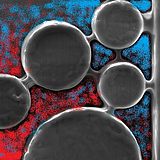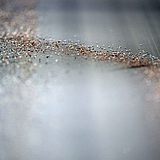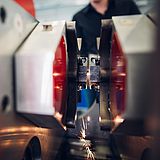Research profile
Research at Clausthal University of Technology focuses on technologies and methods for the sustainable management of the resources energy - material - information and takes up the concept of the circular economy, to which it contributes in various aspects. This concerns both the extraction of raw materials from primary and secondary sources, the design of resource-saving and recyclable materials and products as well as integrated issues relating to complex processes, short and long-term energy storage, CO2 cycle management and innovative concepts for business models. Digitalization is seen as an indispensable cross-cutting issue. Clausthal University of Technology provides outstanding and internationally recognized research services in these topics of high social and scientific relevance.
Clausthal University of Technology's expertise is focused in four closely interlinked fields of research:
Outstanding projects, strategic research collaborations, research centres
Research cooperations and projects at Clausthal University of Technology that deserve special mention often work on an interdisciplinary basis with external partners from science and industry. The research goals are usually defined for the long term and are designed in a broader research framework than in individual and joint projects with a more sharply formulated time and target horizon. This includes our memberships in research networks and research associations as well as our participation in collaborative research centers and research groups or in graduate and doctoral programs. Of course, the Clausthal Research Centres, which coordinate and carry out interdisciplinary research projects internally, also play a special role.
Good scientific practice
Scientific work is based on principles that are the same in all countries and in all scientific disciplines. First and foremost is honesty towards oneself and others. They form the basis for respectful interaction with each other, with study participants, animals, cultural assets and the environment, and are essential for society's indispensable trust in science.
At the same time, they are an ethical norm and the basis for the rules of scientific professionalism, i.e. good scientific practice, which vary from discipline to discipline. Teaching these to students and young scientists and ensuring the conditions for their validity and application in practice is a core task of teaching and the self-government of science.
![[Translate to English:] [Translate to English:]](/fileadmin/_processed_/c/5/csm_Forschen__4__885c4678da.jpg)



